Resources
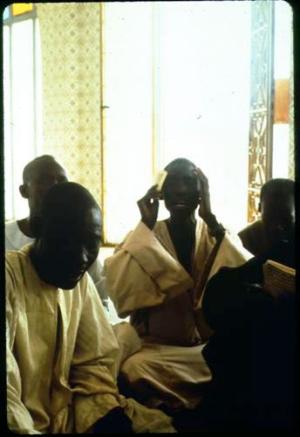
Journal Issue.
This essay asks: What are the ethics of engaging self-identified "conservative" students in topics and processes of learning that may unravel their world-view and possibly their personal lives? We should take their concerns, fear, and distrust seriously and not simply dismiss them as ignorant. We should strive to be "trustworthy" educators, guiding students through the consequences of transformative education. This paper argues that conservative students are critically examining and reacting to the liberal academy by leveling critiques similar to those found within feminist, post-colonial and post modern pedagogies. This essay reviews contemporary postmodern, postcolonial, and feminist pedagogies, which analyze bias and power in the classroom and have sought to represent marginalized voices in the classroom in order to challenge the way education often simply serves and protects the interests of the privileged. Pedagogies centered on subject or disciplinary method cannot secure a trustworthy pedagogy since method, thinking skills, and subjects are themselves bias-laden. But critical pedagogy offers insights to help us achieve the goal of becoming trustworthy educators for students coming from a wide spectrum of religious perspectives.
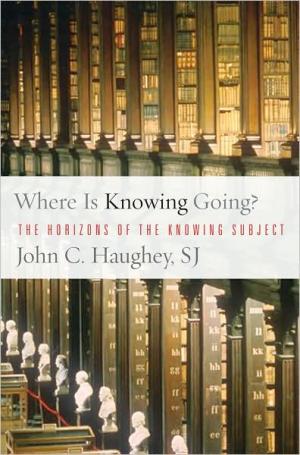
Catholic institutions of higher learning are at a crossroads: How can they remain true to their roots while recognizing that many of their administrations, faculties, and student bodies have little connection with the tradition? How can these institutions remain competitive while maintaining a relationship to the Church? During the past several years, Catholic theologian John C. Haughey, SJ, has conducted groundbreaking research on these questions. He has done this in tandem with a team of Catholic scholars from around the United States. Haughey has also conducted numerous workshops with faculty at a dozen Catholic colleges and universities to learn firsthand about their research and teaching aspirations. Those relationships and conversations provide the foundation for this book's many insights. In "Where Is Knowing Going?", Haughey explores what constitutes the Catholic identity of Catholic colleges and universities. Going beyond a doctrinal understanding of Catholic identity to one that engages and is engaged by the intellectual tradition of Catholicism, Haughey does not find that the issue of Catholic identity is adequately dealt with by marketing the distinctive identities of institutions in terms of their founding religious orders or saints. He provides a sure-handed process whereby the pursuits of individual faculty can be better aligned with the formal mission of the institution. (From the Publisher)
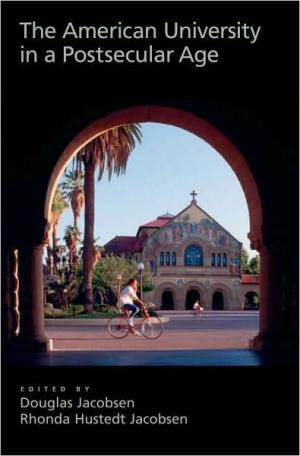
For much of the twentieth century, it was assumed that higher education was and ought to be a secular enterprise, but that approach no longer suffices. The culture has shifted, and contemporary college and university students are increasingly bringing religious and spiritual questions to campus. In response, college and university leaders are exploring anew the relationship between religion and higher education. The American University in a Postsecular Age grapples with key questions: —How religious or irreligious are faculty and students today? What level of religious literacy should be expected from students? —Can religion be allowed into the classroom without being disruptive? —Should colleges and universities help students reflect on their own faith? —Is religion antithetical to critical inquiry? —Can religion have a positive role to play in higher education? This is a state-of-the-art introduction to the national discussion about religion and higher education. Leading scholars and top educators express a wide spectrum of opinions that reflect the best current thinking. Introductory and concluding essays by the editors describe the postsecular character of our age and propose a comprehensive framework intended to facilitate ongoing conversation. (From the Publisher)
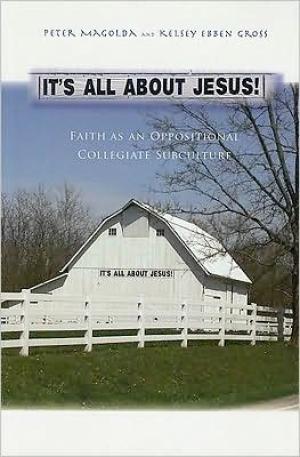
What it is like to be a collegian involved in a Christian organization on a public college campus? What roles do Christian organizations play in the lives of college students enrolled in a public college? What are evangelical student organizations’ political agendas, and how do they mobilize members to advance these agendas? What is the optimal equilibrium between the secular and the sacred within public higher education? What constitutes safe space for evangelical students, and who should provide this space? This book presents a two-year ethnographic study of a collegiate evangelical student organization on a public university, authored by two “non-evangelicals.” The authors provide a glimpse into the lives of college students who join evangelical student organizations and who subscribe to an evangelical way of life during their college years. They offer empirically derived insights as to how students’ participation in a homogeneous evangelical student organization enhances their satisfaction of their collegiate experience and helps them develop important life lessons and skills. Ironically, while Christian students represent the religious majority on the campus under study, Christian organizations on this campus mobilize members by capitalizing on members’ shared sense of marginalization, and position themselves as cultural outsiders. This evangelical student organization serves as a safe space for students to express their faith within the larger secular university setting. The narratives and interpretations aim not only to enrich understanding of a particular student organization but more importantly to spark intellectual discourse about the valueof faith-based organizations within public higher education. The role of religion in public higher education, student involvement in the co-curriculum, and peer education are three examples of critical issues in higher education for which this idiosyncratic case study offers broad understanding. It’s All About Jesus! targets multiple audiences – both sacred and secular. For readers unfamiliar with evangelical collegiate organizations and the students they serve, the authors hope the narratives make the unfamiliar familiar and the dubious obvious. For evangelicals, the authors hope that the thickly described narratives not only make the familiar, familiar and the obvious, obvious, but also uncover the tacit meaning embedded in these familiar, but seldom examined subculture rituals. The authors hope this book spurs discussion on topics such as campus power and politics, how organizations interact with the secular world around them, and how members can improve their organizations. Additionally, this text urges secular readers in student affairs to consider the many benefits, as well as liabilities, of “parachurches” as co-curricular learning sites on campus. Lastly, given that the authors lay bare their methodology, their use of theory, and the tensions between their perspectives and those of the participants, this book will serve as a compelling case study for courses on qualitative research within religion studies, anthropology, sociology, and cultural studies fields. (From the Publisher)
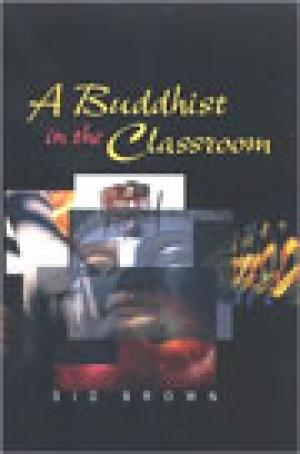
Sid Brown brings a Buddhist perspective into the classroom to explore the ethical quandaries, lived experiences and intimacy of teaching. Addressing such topics as attention, community, rage, wonder, consumerism, and kindness, Brown demonstrates how this centuries-old tradition can enrich and inform classroom life. (From the Publisher)
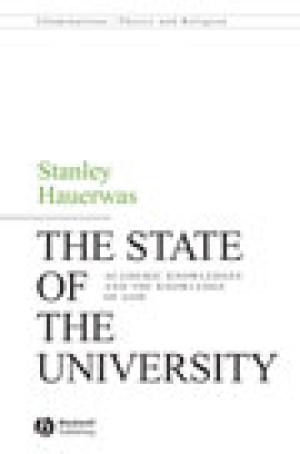
In this book, controversial and world-renowned theologian, Stanley Hauerwas, tackles the issue of theology being sidelined as a necessary discipline in the modern university. It is an attempt to reclaim the knowledge of God as just that – knowledge. * Questions why theology is no longer considered a necessary subject in the modern university, and explores the role it should play in the development of our “knowledge” * Considers how theology is often excluded from the knowledges of the modern university because these are constituted by an understanding of time necessary to make economic and state realities seem inevitable * Argues that it is precisely this difference that makes Christian theology an essential resource for the university to achieve its task - that is, to form people who are able to imagine a different world through critical and disciplined reflection * Challenges the domesticated character of much recent theology by suggesting how prayer and the love of the poor are essential practices that should shape the theological task * Converses with figures as diverse as Luigi Giussani, David Burrell, Stanley Fish, Wendell Berry, Jeff Stout, Rowan Williams and Sheldon Wolin * Published in the new and prestigious Illuminations series. (From the Publisher)